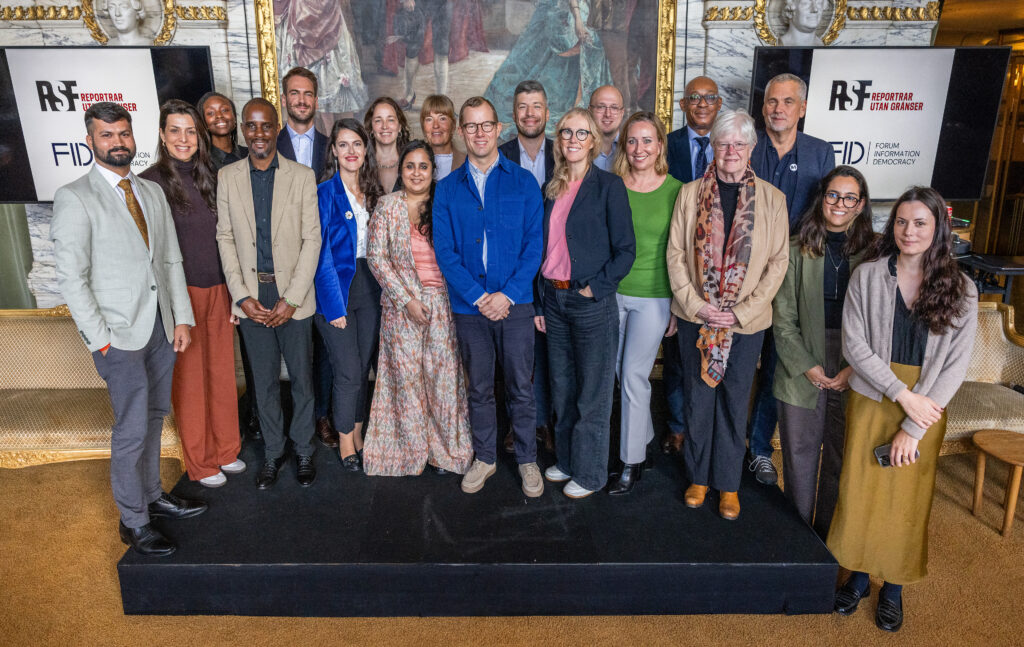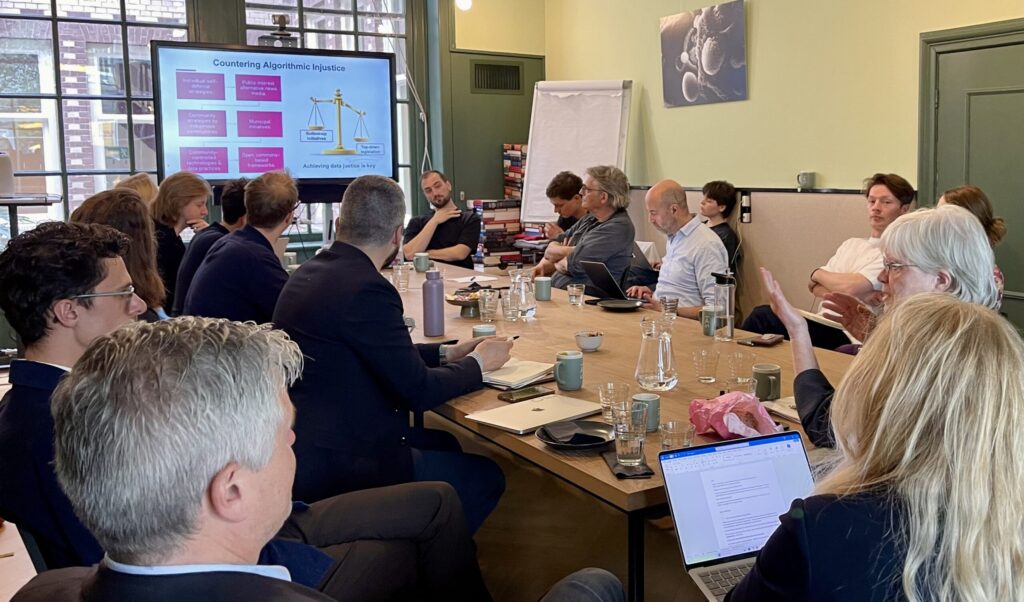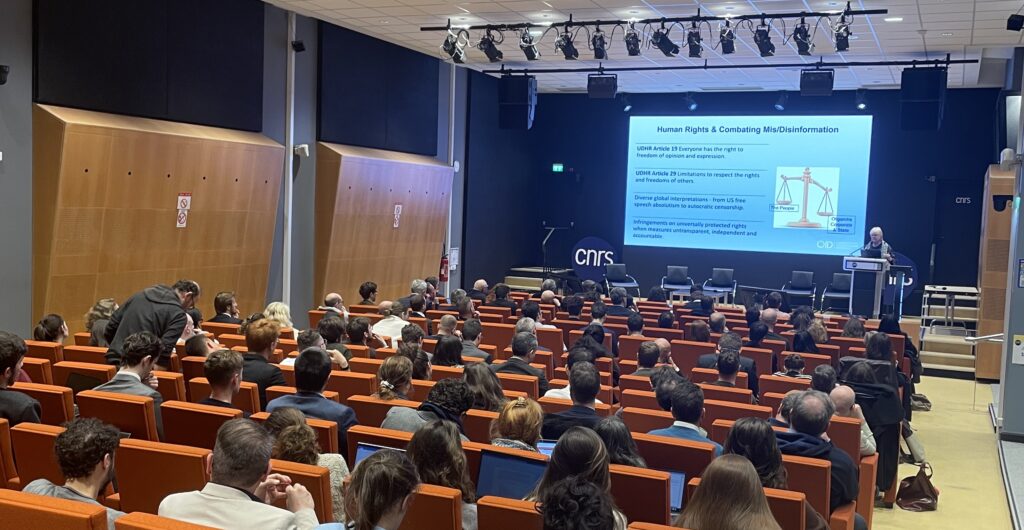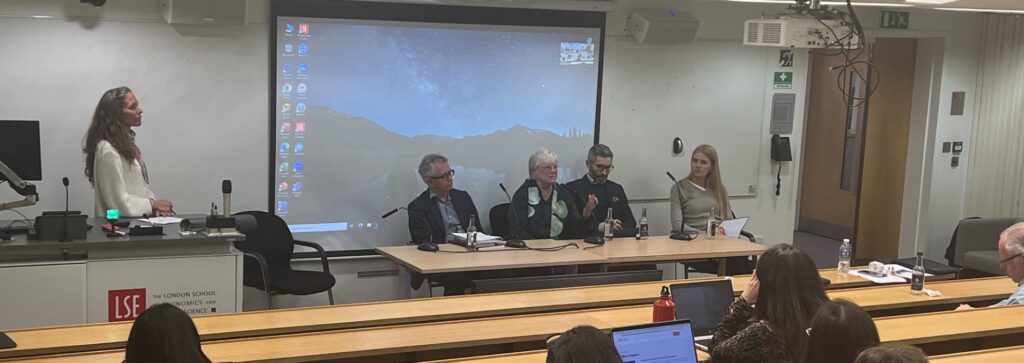The Observatory on Information and Democracy, a flagship initiative of the Forum on Information and Democracy, has released its first report titled “Information Ecosystems and Troubled Democracy”. This landmark document analyzes the current state of academic research on information ecosystems and their impact on democracies worldwide.
The report’s findings stress the urgency to tackle regional, scientific and corporate power asymmetries to effectively govern information ecosystems. Following Meta’s radical content policy shift, this timely publication is a wake up call that policy action must be guided by evidence rather than technological opportunism.
Based on a collective review of 2700 publications compiled by a global network of 400+ experts covering 84 countries and including both academic and civil society perspectives, the report covers issues such as media, politics and trust, the impact of AI on information ecosystems, and data governance. It shows how disinformation is both a phenomenon and a cause of democratic backsliding.
“The analysis in this report helps to penetrate the veil of overhyped technology and the rhetoric that imagines existential threats at every turn. On issues of human safety, security, privacy, cyberwar, or ‘deepfakes’, governing steps being taken now affect everyone. The outcomes are unlikely to be just and equitable without research that produces evidence on why, not just how, harms to adults and children and their communities occur.”
Robin Mansell, Scientific Director of the Observatory and Professor Emeritus at the London School of Economics
Research to Policy Insights and Priorities
The Need for a Global and Inclusive Perspective: The report highlights gaps in research, including a strong Western bias, limited access to data from tech companies, and a lack of focus on structural power dynamics. Fully understanding the impacts of information ecosystems requires inclusive, multidisciplinary, and decolonial approaches. Despite tremendous efforts to compile relevant literature from all over the world, of the 1664 papers cited in the report, only 22,5% come from the Majority World, highlighting the urgent need to diversify perspectives, by supporting and promoting research from countries outside the Global North and better considering their citizens’ specific experiences.
Towards Data Justice: The report pushes the concept of data justice – referring to the fair and equitable treatment of individuals and communities in how data is collected, used, and shared – against corporate-driven unfair data practices. The monetization of data for profit by Big Tech business models undermines public trust and facilitates the weaponization of information. The study stresses power asymmetries between tech corporations and online users and advocates for equitable access to data and a fairer distribution of resources and influence in shaping global information systems. It highlights alternative practices as a silver lining for marginalized communities.
A New Lense on Mis and Disinformation: Existing literature points to a focus of media and policy attention on the causality effect between disinformation and political polarization, while evidence gathered fails to establish this link scientifically. Of the 65 sub-topics covered by the analysed literature, 16% of sources were on politicisation, fake news, and mis- and disinformation. The report calls for addressing the structural, institutional, and power dynamics underpinning these issues rather than relying solely on content moderation, algorithmic fixes, or Media and AI literacy, while important. These findings also call for research independence and gatekeepers against corporate influence, given online data and academic resource scarcity, as well as recent attacks on researchers.
A Tool for Decision-Makers and a Call for Global Collaboration
Targeted at policymakers, researchers, civil society actors, and big tech companies, the report aspires to become a reference guide, akin to the IPCC in the field of climate science. Grounded in robust scientific evidence, it provides a framework for concrete actions to safeguard democracies in the digital age.
The full report, along with thematic summaries, and an interactive literature map are available on the Observatory’s website. The Observatory is a central initiative of the Forum on Information and Democracy, which comprises 55 democratic states. Its mission is to periodically assess the impact of information ecosystems on democracy and to promote accountability among governments and tech corporations.
This research to policy initiative was founded by figures like Maria Ressa, Shoshana Zuboff, Angel Gurría and Christophe Deloire, and supported by world-leading academics and experts from different horizons including Jun Murai, Frances Haugen, Gérald Bronner, Anya Schiffrin, Timothy Garton Ash. It gathers a global network of over 400 academics and civil society leaders and strives to produce periodic assessments of the impact of information ecosystems on democracy for more evidence-based and future-proof policy action.
The report aligns with the UN’s Global Digital Compact goals, emphasizing the need for evidence-based policies to combat technology-facilitated violence, hate speech, and misinformation. It urges global stakeholders—including governments, civil society, and private sector leaders—to reimagine digital governance and invest in sustainable, inclusive information ecosystems. It also calls for supporting scientific advancement in research gaps identified and developing consensual measurement frameworks.






